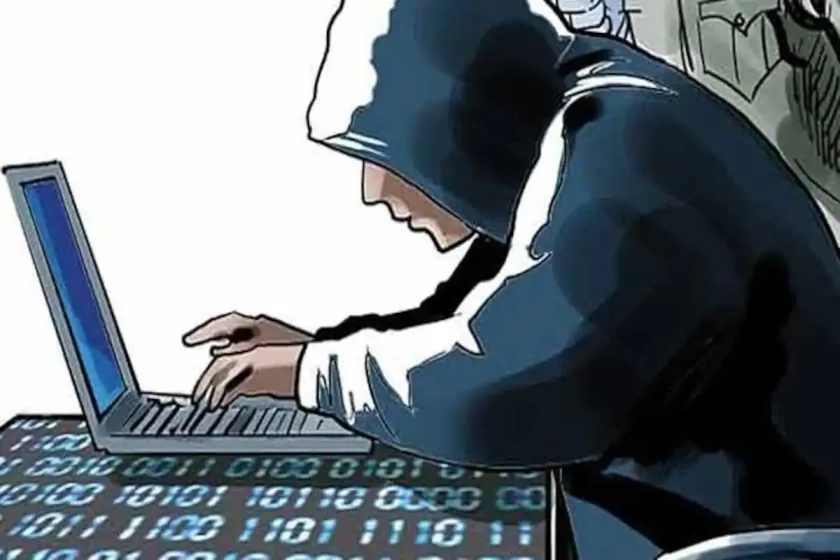With the help of the Internet, the cyber criminals have become a lot smarter and also this has increased the rate of incidences. It is important to know the definition of Cyber Criminals so that you can keep a track on the criminals or rather warn them if you detect that your computer is being attacked by them.
Hacking is defined as any criminal activity in which the victim’s privacy is invaded and his/her confidential information is stolen.
So who are Cyber Criminals?
Well, according to experts, Cyber criminals are those who will steal any company’s confidential information and then sell or distribute it. If you are wondering, if it is so easy to steal any company’s information and sell them on the black market then why do companies and government agencies invest so much in protecting them from hackers?
It is said that almost half of all reported cases of identity theft are from the victims themselves and the rest of it (which is non-identifiable) comes from their family members and friends.
Most of the crooks will just be sitting in their bedroom playing with a virtual keyboard and mouse and will not even know that there has been a crime committed.
In most of the reported cases, the victims who complained about their online encounters only got warnings and later on after spending some time, they are surprised to see that their bank accounts have been cleaned out or that they have been charged some outrageous bills.
So the next question that would arise in your mind is how on earth did these crooks get access to our vital personal data such as our social security number, credit card number, phone numbers and so on which can put us at a serious risk of being a victim of cyber crime.
Well, this is exactly how cyber criminals operate and usually very few of them will ever get caught because of the fact that most of the public do not have an idea about cyber crimes.
Also most people consider computer network security as something that is completed once a week or even once a month. This is way too long for a human being to spend monitoring the system and it is definitely insufficient considering the massive amount of data that is available in the network and the potential damage that this kind of attack can cause. Therefore, it is important that we make our computers network security strong so that a disaster such as this never happens.
Cyber Criminals are known by several names. But what they all have in common is the fact that they use a variety of tactics and methods for carrying out their nefarious plans.
Some of the most common tools used by these cyber criminals include:
- Password harvesting
- Keylogging
- Redirecting
- Pushing,
- Hacking, and malware engineering
There are several ways that you can protect yourself from these kinds of online threats.
One of the simplest and sure shot ways to protect yourself from cyber crimes is to avoid giving your personal and financial information to people you don’t know nor trust.
For example: if you receive an email requesting for some personal information such as, your social security number, credit card number, bank account details or any other confidential information then be sure to read it carefully before you open it.
The very same goes for emails that ask for your banking information as you should never respond to these emails. Also, never visit any website that you are unsure of especially those that look phishing towards you.
Most of the time, phishing attacks are done via spoofed sites, therefore, make sure that you always check out the credibility of the site before you click on any of its links.
Another way you can protect yourself from cyber crimes and other online threats is to be careful of the IP address you expose yourself to. An IP address is a unique set of numbers assigned to each computer when connecting to the Internet.
If you surf over the Web using a friend’s or relative’s computer, the IP address you are visiting could be visible to the cyber criminals. As such, it is recommended that you only expose your personal IP address to friends or relatives whom you know and trust.
Types of Cybercrime
- DDoS Attacks.
- Botnets.
- Identity Theft.
- Cyberstalking.
- Social Engineering.
- PUPs.
- Phishing.
- Prohibited/Illegal Content.
- Data Theft
- Unauthorised System Access
Cyber Criminals Defined
Cybercriminals are individuals or teams of people who use technology to commit malicious activity on digital systems or networks for the purpose of stealing sensitive company information or personal data and generating profit.
Cybercriminals are known to access the cybercriminal underground markets of the deep web to exchange malicious goods and services, such as hacking tools and stolen data. Cyber criminal underground markets are known to specialise in certain products or services.
Laws
Cybercrime-related laws are evolving in different countries around the world. Law enforcement agencies are also constantly challenged when it comes to finding, arresting, prosecuting, and proving cybercrime.
Cybercriminals, Hackers, and Threat Actors
Hacking is not necessarily cybercrime; therefore, not all hackers are cyber criminals. Cybercriminals hack and infiltrate computer systems with malicious intent, while hackers only try to find new and innovative ways to use the system, both good and bad.
Cybercriminals also differ greatly from threat actors in a number of ways, the first of which is intent.
Threatening actors are individuals who carry out targeted attacks, actively pursue and compromise the infrastructure of a target entity. Cyber crimes are unlikely to focus on a single entity, but operate on large masses of victims defined only by types of platforms, online behaviours, or similar programs.
Second, they differ in the way they conduct their operations. Threat actors follow a six-step process, which includes finding targets and moving sideways within a network. Cybercriminals, on the other hand, are unlikely to follow defined steps to get what they want from their victims.
Cyber Criminals Insights In Australia and Globally
- Sophistication and Diversity: Cyber criminals in Australia, as well as globally, exhibit a wide range of sophistication levels and operate across various domains including financial fraud, identity theft, data breaches, ransomware attacks, and more.
- Growing Threat Landscape: The threat landscape posed by cyber criminals is continually evolving. With advancements in technology, the proliferation of connected devices, and the increasing digitisation of critical infrastructure, the potential attack surface for cyber criminals both in Australia and globally is expanding rapidly.
- Targeting of Critical Infrastructure: There is an increasing trend of cyber criminals targeting critical infrastructure sectors such as energy, healthcare, transportation, and telecommunications. The attacks not only pose significant risks to public safety and national security but also have the potential to cause widespread disruption and financial losses.
- Ransomware Epidemic: Ransomware attacks have become a pervasive threat globally, affecting organisations of all sizes and sectors. Cyber criminals often target businesses and institutions in Australia and other countries, encrypting their data and demanding ransom payments in exchange for decryption keys.
- International Collaboration: Cyber crime is a transnational issue, and cyber criminals often operate across borders to evade law enforcement. As such, international collaboration among law enforcement agencies, governments, and private sector organisations is crucial for combating cyber crime effectively.
- Emerging Threats: Cyber criminals are constantly innovating and adapting their tactics to exploit new vulnerabilities and circumvent security measures. Emerging threats such as supply chain attacks, deepfakes, and attacks targeting emerging technologies like Internet of Things (IoT) devices and artificial intelligence (AI) systems pose significant challenges for cybersecurity professionals in Australia and around the world.
- Need for Cybersecurity Awareness and Education: Given the evolving nature of cyber threats, there is a growing need for cybersecurity awareness and education among individuals, businesses, and government agencies in Australia and globally.
Cyber & Data Breaches In Australia – 2024
Every year, Australia experiences numerous data and cyber breaches targeting businesses. Although the majority of these breaches target smaller businesses, occasionally there are significant cyber incidents that affect large organisations and impact a substantial number of individuals.
Famous Cyber Criminals
- Kevin Mitnick.
- Anonymous.
- Adrian Lamo.
- Albert Gonzalez.
- Matthew Bevan
- Richard Pryce.
- Jeanson James Ancheta.
- Michael Calce.
- Kevin Poulsen
- Mark Abene
- Max Butler
Convictions Of Computer Crimes
Cybercrime or hacking convictions began back in 1984 with the 414s case from the 414 Milwaukee area code. In this case, six teenagers broke into a number of high-profile computer systems, including the Los Alamos National Laboratory, Sloan-Kettering Cancer Center, and Security Pacific Bank.
On May 1, 1984, one of the 414, Gerald Wondra, was sentenced to two years’ probation. In May 1986, the first conviction for a computer misdemeanour resulting in a prison sentence was given to Michael Princeton Wilkerson, who was sentenced to two weeks in prison for infiltrating Microsoft, Sundstrand Corp., Kenworth Truck Co. and Resources Conservation Co.
In 2006, a prison term of nearly five years was handed down to Jeanson James Ancheta, who created hundreds of zombie computers to do his bidding via giant bot networks or botnets. He then sold the botnets to the highest bidder who in turn used them for Denial-of-service (DoS) attacks
The longest sentence for computer crimes since 2012 is Albert Gonzalez’s sentence of 20 years. The next longest sentences are 13 years for Max Butler, 108 months for Brian Salcedo in 2004 and upheld in 2006 by the US 4th Circuit Court of Appeal, and 68 months for Kevin Mitnick in 1999.






